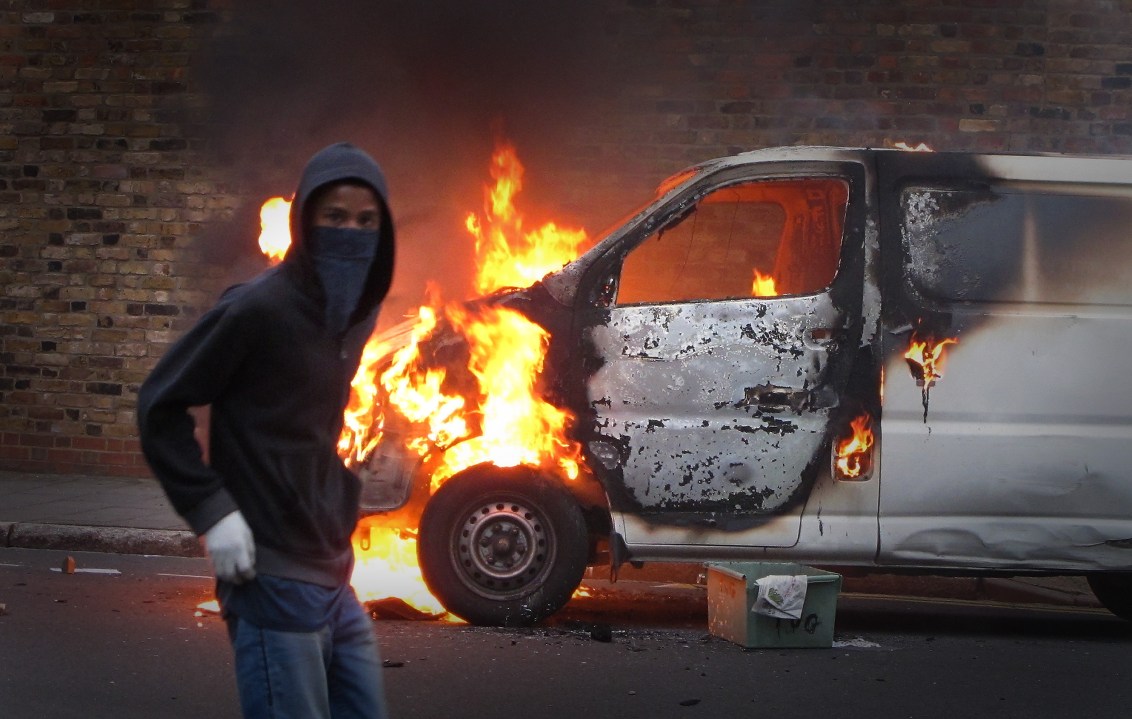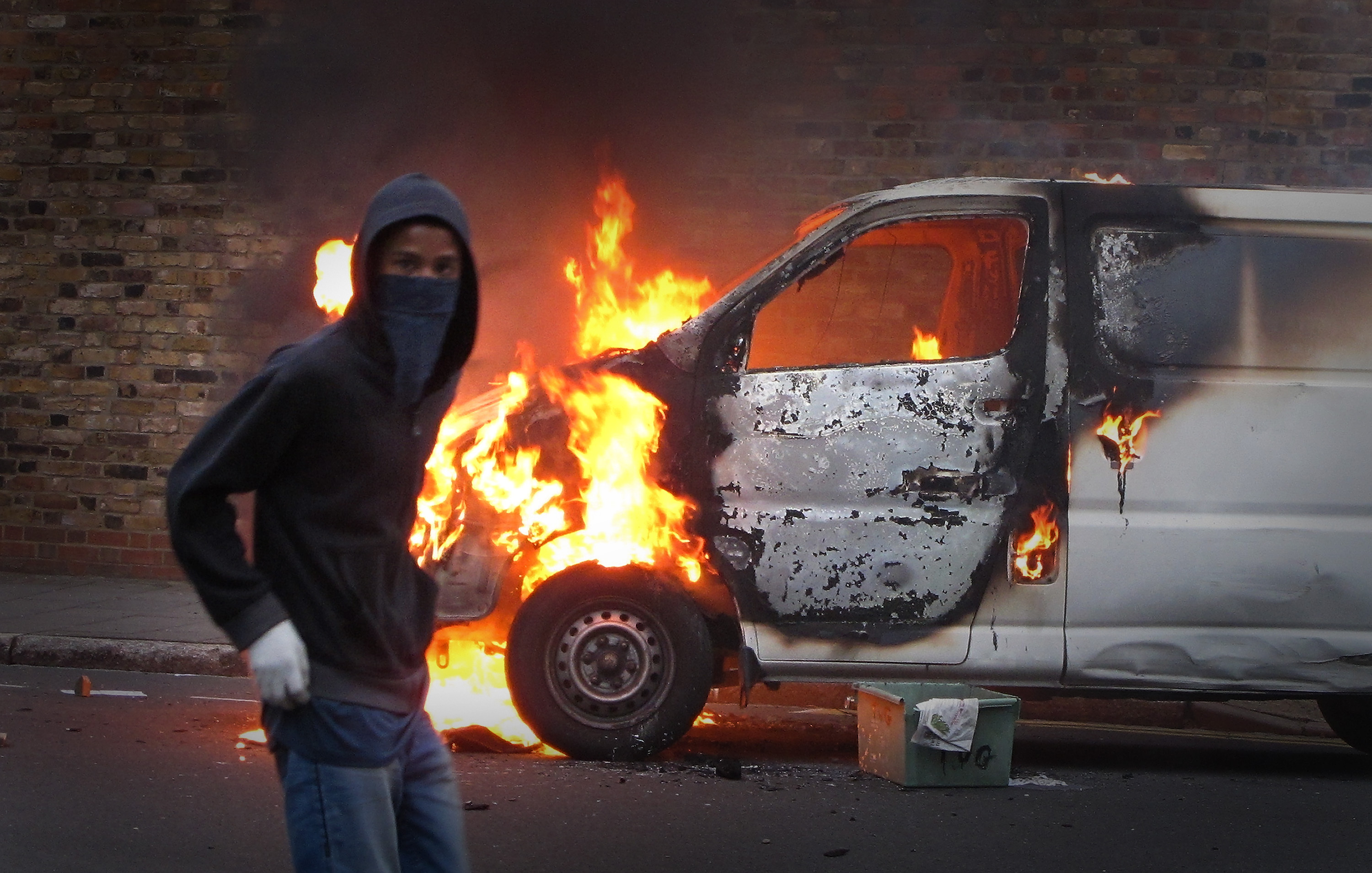 A month has passed since the riots, and it still feels as if nobody has grasped what
really happened. The media debate has been limited, to say the least: lots of self-appointed community leaders and youth experts talking about giving kids a “voice” or “stake”
in society, or calling the likes of David Starkey racist. The BBC “riots debate” last night, featuring Dame
Claire Tickell, Liam Nolan, Shaun Bailey and former gang member Sheldon Thomas was particularly frustrating. Every time somebody came close to making a good point – Bailey, for instance,
issued strong remarks about the commercialisation and sexualisation of children – someone else would drown it in bien-pensant blather.
A month has passed since the riots, and it still feels as if nobody has grasped what
really happened. The media debate has been limited, to say the least: lots of self-appointed community leaders and youth experts talking about giving kids a “voice” or “stake”
in society, or calling the likes of David Starkey racist. The BBC “riots debate” last night, featuring Dame
Claire Tickell, Liam Nolan, Shaun Bailey and former gang member Sheldon Thomas was particularly frustrating. Every time somebody came close to making a good point – Bailey, for instance,
issued strong remarks about the commercialisation and sexualisation of children – someone else would drown it in bien-pensant blather.
It’s a shame that David Goodhart’s brilliant Prospect article on rap and the yoof – which explores race issues in a thoughtful and sensitive way – did not make a greater impression on the rest of the press. It seems to have been dismissed by the left – who regard Goodhart as a traitor anyway – and ignored on the right.
I don’t see why. The article was an example of liberal thinking at its best. Goodhart did not foam, yet nor did he shrink from going where others dare not tread. He was particularly shrewd about
the cultural effect of rap music:
Self-pity does abound. It’s not just the rioters; we all seem inclined to feel sorry for ourselves and are addicted to venting our anger about it.“Watch the videos of rappers like Lethal Bizzle and Giggs… It is not true to say that this is non-political. There is a politics, but it is vicious and self-pitying. In an admiring piece by Dan Hancox for the Guardian, Lethal Bizzle and others are reported both regretting and justifying the rioting; slagging off the politicians while completely absolving themselves of all responsibility. Lethal Bizzle wrote an article in the Guardian back in 2006 attacking David Cameron for presuming to make a connection between rap music and knife crime. (Lethal Bizzle’s song “You’ll Get Wrapped” is an argument for arming yourself with a lethal weapon.) He makes no attempt to refute the idea that there might be some sort of connection between the ideas he broadcasts and what happens on the street. Instead he tells us that he has generouslymentored a dozen black kids and thereby probably saved them from a life of crime.”
Take, for instance, the response to Pauline Pearce, the brilliant and brave internet heroine who shouted at the rioters. “I’m shamed to be a Hackney person,” she said. “Because we are not all gathering together and fighting for a cause. We are running out of Footlocker and thiefin’ shoes.”
White middle-class Twitterers and bloggers fell in love with Pauline because she berated the rioters using a language of minority and community and victimhood – “gathering together”, “fighting for a cause”, etc – with which we could all feel comfortable. Better still, in turning her anger towards the thugs who were frightening us, she enabled us to feel a bit sorry for ourselves, too.
In her interview with the Spectactor last week, Pauline Pearce – who seems, I should say, distinctly and admirably lacking in self-pity – was adamant that the rioting had “no links to hip hop”. But to deny that the rioters – white and black – were informed by a “hip hop culture” (admittedly a loose term), which is all about grievances and entitlement, is to be willfully blind. What can be done about that is, however, another matter.








Comments